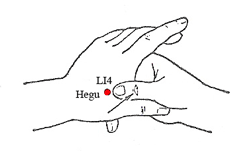 All new mothers experience a mixture of being overjoyed and overwhelmed at the birth of their newborn child, but recovering from a major abdominal surgery such as a cesarean section will only add to the stress after childbirth. Along with the surgery, you will also be experiencing normal postpartum issues, such as swollen breasts, severe mood swings and excessive vaginal discharge, all of which are usually subdued once you hold your child in your arms.
All new mothers experience a mixture of being overjoyed and overwhelmed at the birth of their newborn child, but recovering from a major abdominal surgery such as a cesarean section will only add to the stress after childbirth. Along with the surgery, you will also be experiencing normal postpartum issues, such as swollen breasts, severe mood swings and excessive vaginal discharge, all of which are usually subdued once you hold your child in your arms.
Even with the euphoria of cuddling your newborn, you must be careful what you do in the first few days and weeks right after receiving a c section. Typically, c section patients remain for two to four days in the hospital, depending on if there are any complications. Even then, once released from the hospital, your recovery is far from over and will continue for several more weeks. Make sure your family and friends are ready and able to help you, especially if you have other children that are also seeking your attention. This article will help you learn more about c section recovery.
C Section Recovery: How Will You Feel After?
Day 1 After C Section
Your experience on day one will depend on the type of anesthesia you received. For general anesthesia patients, you will feel tired and groggy, along with a bit of pain and nausea. If you receive spinal or epidural anesthesia, you may experience what is referred to as ‘the shakes’, along with an itching feeling if you received any morphine. Don’t worry, all of these side effects are completely normal and caused by the combination of the birth and the medications.
If you had an unplanned c section, remind yourself that it was necessary, you did nothing wrong, and your baby is safe and healthy because of the surgery. Additionally, nurses will be there to check your IV, catheter and other vitals constantly, so ask for help or advice when needed. Once the catheter has been removed, grab a nurse and start moving around slowly. The more ambulatory you are, the quicker your body will recover. If both of you and your baby are healthy, you should be able to breastfeed soon. Be sure to discuss good nursing positions for a c section with the local lactation consultant to avoid any unnecessary pain in your abdomen.
Day 2 After C Section
As soon as the catheter is out and you have started moving around, you will be able to start a liquid diet. Don’t try to consume anything too heavy, and stay away from carbonated drinksas this may cause internal complications. Now that you are starting to move around more, make sure you always have a walking companion for safety reasons.
Also, take a good look at your incision. It may surprise you to not see any stitches, but keep in mind that there are internal stitches. Become familiar with the incision so you will notice any potentially dangerous changes. Lastly, stay ahead of your pain with the medicine you have been given.
Day 3-5 After C Section
These are going to be your first days at home. Don’t stress out about the state of the house or anything else but yourself and your newborn baby. If anyone comes to visit, put them to work!
Do not forget to move around, slowly, to circulate the blood and start the healing appropriately. To ease your abdominal pain, carry around a pillow and use it when sitting, walking, laughing, coughing and sneezing. Though you may feel miserable right now, remember that you are getting betterwith each passing day.
6-8 Weeks Later After C Section
Around this time, you will have your final postpartum check up with your doctor to ensure you are still healing properly, as well as release you to begin exercising and having sex again. While you may feel some pulling or slight burning in your stomach, this is just the superficial nerves growing back.
More importantly, allow yourself to recover emotionally. Many women may feel depressed that they could not deliver vaginally, but learn to think of your incision as a victory, and not a wound.
C Section Recovery: 10 Ways to Speed Up the Process
1. Give In to Your Emotions
Come to terms with your feelings by talking with friends and family that understand what you just went through. Remember that it is okay to grieve. Even if your baby is perfectly healthy, it is perfectly normal to be upset that you did not deliver vaginally.
2. Put Visitors to Work
When you come home for that first month with your newborn, your well-being and your baby’s is all that matters. Anyone who visits should be put to work. Also, enlist people to create a meal drop-off, or even hire a doula staying the night to speed up recovery.
3. Use Pillows
Your abdomen spent nine months creating a child, and is now trying to knit itself back togetherwhich can be painful. Use a pillow when walking, and keep it close for any time you may laugh, cough or sneeze, as the cushioning will help alleviate the pain. Additionally, place it behind you when sitting to provide proper support.
4. Wear Silk
The silkier the better as it allows you to slide over other materials without getting stuck, which can be painful for c section patients. This is especially beneficial when you roll around at night, or when getting out of bed.
5. Take It Slow
While you may want to lounge and cuddle your newborn, your body needs movement to heal. Any movement, no matter how slow, will help you return to normal more quickly.
6. Water, Water, Water
Be sure to keep taking the stool softeners given by your doctor. Besides, make sure you drink a lot of water. It’s good to start with approximately half your bodyweight in ounces, and drink whenever you feel thirsty. It will help regulate your system, flush out toxins, and even increase your milk supply if breastfeeding.
7. Get Proper Nutrition
You remember those you enlisted to make meals? Make sure they bring you the nutrition your body really needs and include whole and healthy foods. Eating healthy will ensure your body is receiving the proper nutrients it needs for all of your muscles and tissues to heal.
8. Keep a Journal
Whether your birth story was what you expectedor sent you through a plot twist, write it down. By writing everything down, you will be able to decipher your emotions, and will have something to share with your newborn when he grows older.
9. Don’t Forget Medicine
Pain medication will be your best friend right now, so long as you continue to stay ahead of the pain. If you were not prescribed anything by your doctor, check with them for your best option. Most will prescribe ibuprofen since it decreases inflammation along with reducing pain.
10. Revel in Baby Bliss
Even though it wasn’t a vaginal delivery, you still gave birth to a child that needs your attention. They won’t be this small for long, so make sure you caress, smell and cuddle your newborn as much as possible. Doing so is actually helpful in improving any negative emotions you may be coping with as well.
Warning: If any of the following symptoms occur, consult your doctor or caregiver immediately.
- Fever
- Heat, swelling, or puss at incision
- Increase or sudden bouts of pain
- Foul vaginal discharge
- Urinating with pain, difficulty urinating despite feeling you need to constantly, or dark or bloody urine
- Vaginal discharge is still red after four days, or returns to a darker color after starting to diminish
- Signs of a blood clot—pain in one area of your leg, or one leg more swollen than the other
Want to know a mom's c section recovery? Check out this video:






